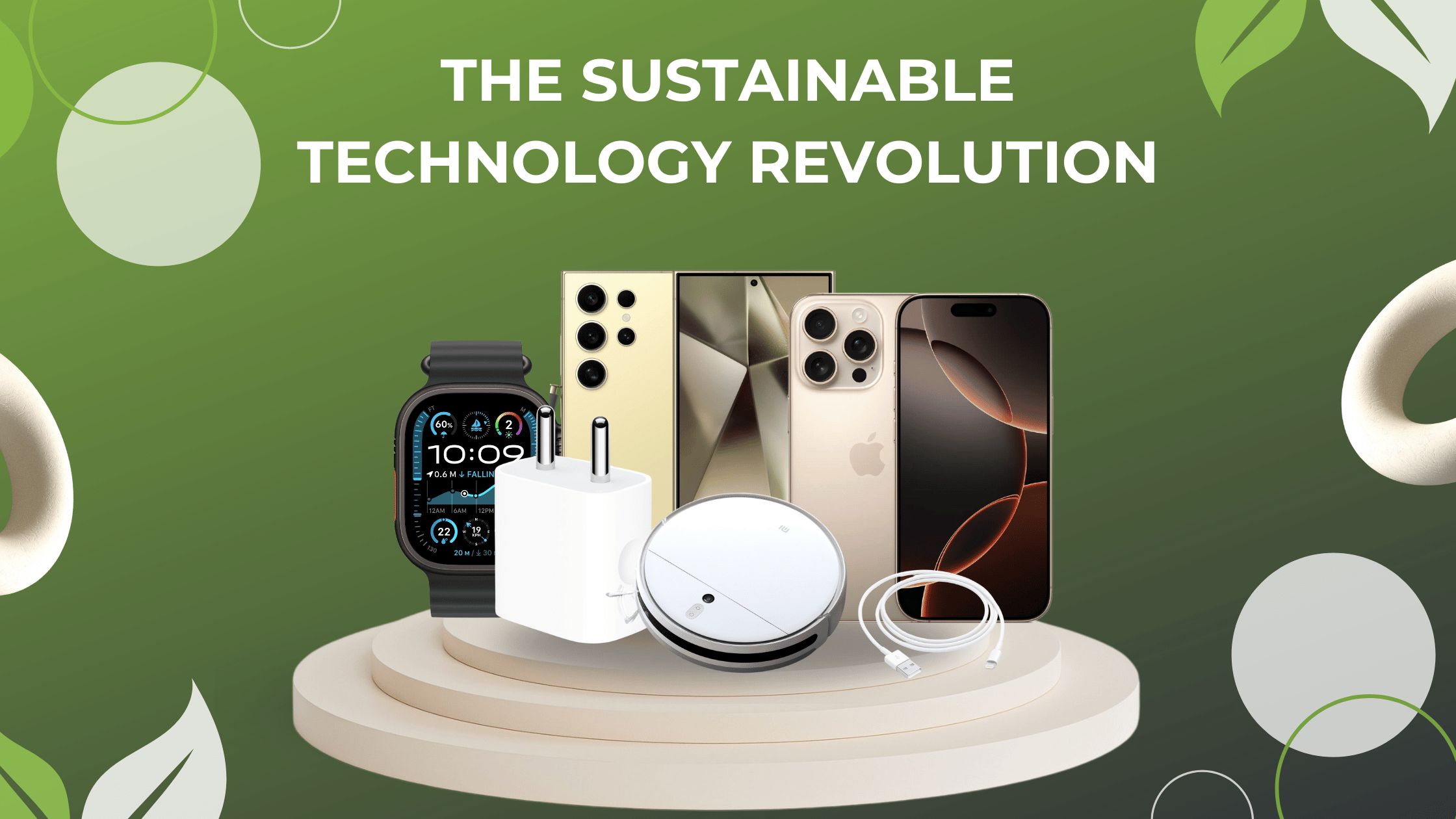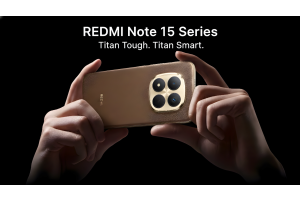
As we enter an era of heightened environmental awareness, eco-friendly technology is becoming more than just a trend—it’s becoming a movement. This shift impacts product design, purchasing decisions, and the very way we use technology. Consumers are increasingly seeking sustainable alternatives, and tech companies are innovating to meet this demand by creating eco-conscious gadgets. SKUK are embracing this movement, making it easier for people to access products that align with their environmental values.
The Environmental Cost of Traditional Technology
From smartphones to laptops and wearables, modern technology has transformed our lives, yet it leaves a substantial environmental footprint. Electronic waste, or e-waste, accumulates in landfills worldwide at a rate of approximately 50 million tons annually. Many devices contain materials such as lead, mercury, and cadmium, which are hazardous to both people and ecosystems. In addition to the waste generated at the end of a product's life, the manufacturing process itself contributes significantly to carbon emissions and resource depletion.
The demand for greener tech has led to a powerful market shift toward a "circular economy." This model focuses on designing products that can be reused, repaired, or recycled rather than discarded after a short lifespan. Companies are now investing in creating products that emphasize longevity, energy efficiency, and the use of sustainable materials, allowing consumers to engage in a more responsible and eco-friendly approach to technology.
Key Elements of Eco-Friendly Technology
When we talk about eco-friendly gadgets, we're not just talking about lower power consumption or recycled materials. A truly sustainable gadget integrates multiple eco-friendly attributes:
- Sustainable Materials: Gadgets that use recycled metals, biodegradable plastics, or responsibly sourced materials reduce the demand for new resources. Brands like Samsung are using recycled aluminum and plastics in their latest devices, while Apple’s efforts in sourcing conflict-free minerals have set a high standard in the industry.
- Energy Efficiency: The energy a device consumes throughout its life has a direct impact on carbon emissions. Products with energy-efficient designs, such as laptops with low-power processors or LED displays, significantly reduce energy consumption. Apple's M1 and M2 chip designs are known for their balance of high performance and energy efficiency, enabling devices like the MacBook Air to function with minimal power usage.
- Modular Design and Repairability: Modularity allows users to repair or upgrade specific parts rather than replacing an entire device. Companies have embraced this approach, creating modular smartphones that are easy to repair, which extends the product's life and reduces waste. This also empowers consumers to make repairs themselves or seek third-party repairs instead of discarding their gadgets.
- Reduced Packaging and Carbon-Neutral Shipping: Some brands are adopting minimalistic packaging designs that eliminate plastics, use recycled cardboard, and reduce overall material usage. Carbon-neutral shipping options are also becoming available as brands seek to offset emissions generated during the delivery process.
- Commitment to Recycling Programs: Some companies offer take-back or trade-in programs, allowing consumers to return old devices for recycling. Apple’s recycling initiative encourages customers to bring back old products, which are then disassembled and recycled, ensuring valuable materials are recovered and waste is minimized.
Eco-Friendly Devices on the Market
The market for eco-conscious tech is expanding rapidly, with new products designed to satisfy both tech enthusiasts and environmentally-minded consumers. SKUK offer an extensive range of such gadgets, which combine performance with sustainability. Here’s a closer look at some notable eco-friendly gadgets available today:
- Apple Watch Ultra 2: Known for its commitment to sustainability, Apple has used recycled aluminum, tin, and rare earth elements in the Apple Watch Ultra 2. The company is striving toward a completely carbon-neutral supply chain by 2030, and the Apple Watch Ultra 2 is a prime example of this vision.
- Samsung Galaxy S24 Ultra: Samsung’s Galaxy S24 Ultra incorporates recycled materials into its design and packaging. As part of Samsung’s sustainability program, the device is created with a focus on longevity and reduced environmental impact, ensuring a high-performance smartphone with minimal ecological footprint.
- MacBook Air (M3 chip): Apple’s MacBook Air is widely recognized for its energy efficiency, thanks to the M3 chip’s low power consumption. This laptop offers impressive performance while drawing significantly less energy compared to traditional laptops, making it a smart choice for eco-conscious users.
- Mi Robot Vacuum-Mop: This smart home device combines functionality with energy efficiency, reducing household power consumption. With its minimalist design and energy-saving capabilities, the Mi Robot Vacuum-Mop offers a sustainable solution for keeping homes clean.
Eco-Friendly Accessories and Smart Home Solutions
In addition to devices, accessories play an essential role in the eco-friendly tech landscape. SKUK offers a range of sustainable accessories designed to complement eco-conscious lifestyles. For example:
- Apple 1m Lightning to USB-A Cable: Made with durable, eco-friendly materials, this charging cable is designed to withstand wear and tear, reducing the need for frequent replacements.
- Apple 20W USB-C Power Adapter: This compact, energy-efficient charger supports rapid charging while consuming less power, making it a green choice for charging devices efficiently.
Smart home technology is also becoming a popular way to reduce household energy usage. Smart thermostats, energy-efficient light bulbs, and low-power devices contribute to a greener household while providing convenience. The Mi Robot Vacuum-Mop Brush, available through SKUK, is one such device that offers energy-efficient cleaning, adding a touch of automation to daily chores while lowering energy consumption.
Tips for Choosing Eco-Friendly Gadgets
As you consider your next tech purchase, here are some tips to ensure you’re making a sustainable choice:
- Look for Eco-Certifications: Certifications such as Energy Star, EPEAT, and TCO Certified indicate that a product meets high standards for energy efficiency and environmental impact.
- Research Brand Sustainability Practices: Many tech brands now publish sustainability reports or outline their environmental policies on their websites. Review these reports to understand their commitment to eco-friendly practices and select brands that align with your values.
- Choose Devices with Longer Lifespans: Opt for gadgets known for durability and longevity, which minimizes the need for frequent replacements and reduces e-waste.
- Prioritize Repairable Devices: Gadgets designed for repairability offer better value over time, as you can replace or upgrade specific parts rather than the entire device.
- Use Trade-In or Recycling Programs: Many companies offer programs to recycle or repurpose old devices, ensuring they don’t end up in landfills. These programs may even offer credits toward new purchases, providing both economic and environmental benefits.
The Role of Consumer Behavior in Sustainable Technology
The rising interest in eco-friendly gadgets shows that more and more people care about making sustainable choices in what they buy. As more people choose eco-conscious products, tech companies have greater incentives to adopt sustainable practices, resulting in a positive impact across the industry.
SKUK have recognized this trend and expanded their offerings to include a range of sustainable gadgets. This shift not only aligns with consumer values but also empowers individuals to make choices that benefit the environment.
The Future of Eco-Friendly Technology
The eco-friendly tech market is expected to grow as innovations in materials science, energy efficiency, and product modularity continue to evolve. Future gadgets may incorporate biodegradable components, while 3D printing technology could enable more local, low-emission manufacturing processes. The use of artificial intelligence to optimize energy consumption in devices may also become more prevalent.
SKUK is leading this change by providing a variety of products focused on promoting a sustainable future. By choosing eco-friendly gadgets from SKUK, consumers can enjoy the benefits of advanced technology while making a positive impact on the environment.
A Greener Future with SKUK
Eco-friendly gadgets are no longer a niche—they’re an essential part of a sustainable future. By choosing products that prioritize energy efficiency, durability, and responsible materials, consumers can enjoy cutting-edge technology without compromising the planet’s health. SKUK’s diverse selection of eco-conscious gadgets offers a variety of options for those looking to make environmentally responsible choices.
So, as you explore the latest tech, remember that each purchase is an opportunity to support sustainability. By choosing eco-friendly gadgets, you’re contributing to a greener future, one device at a time.












